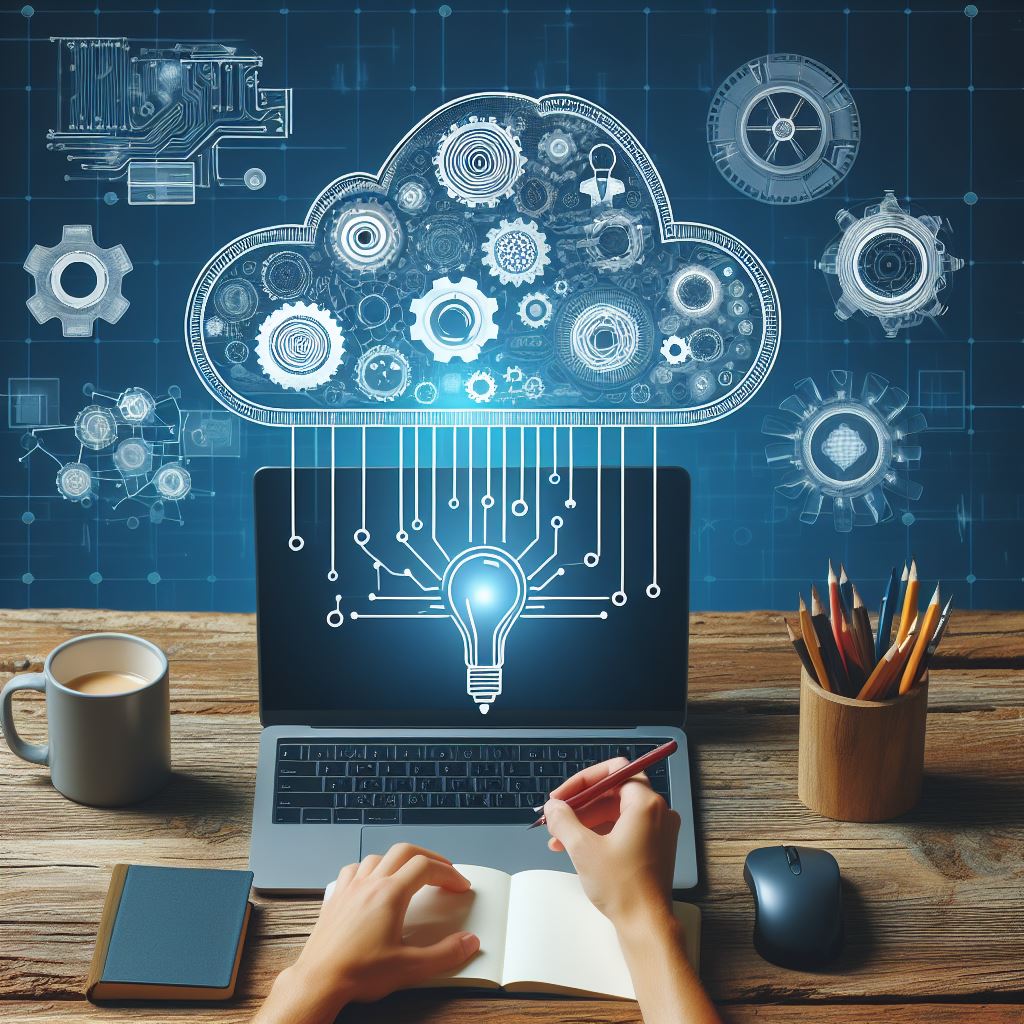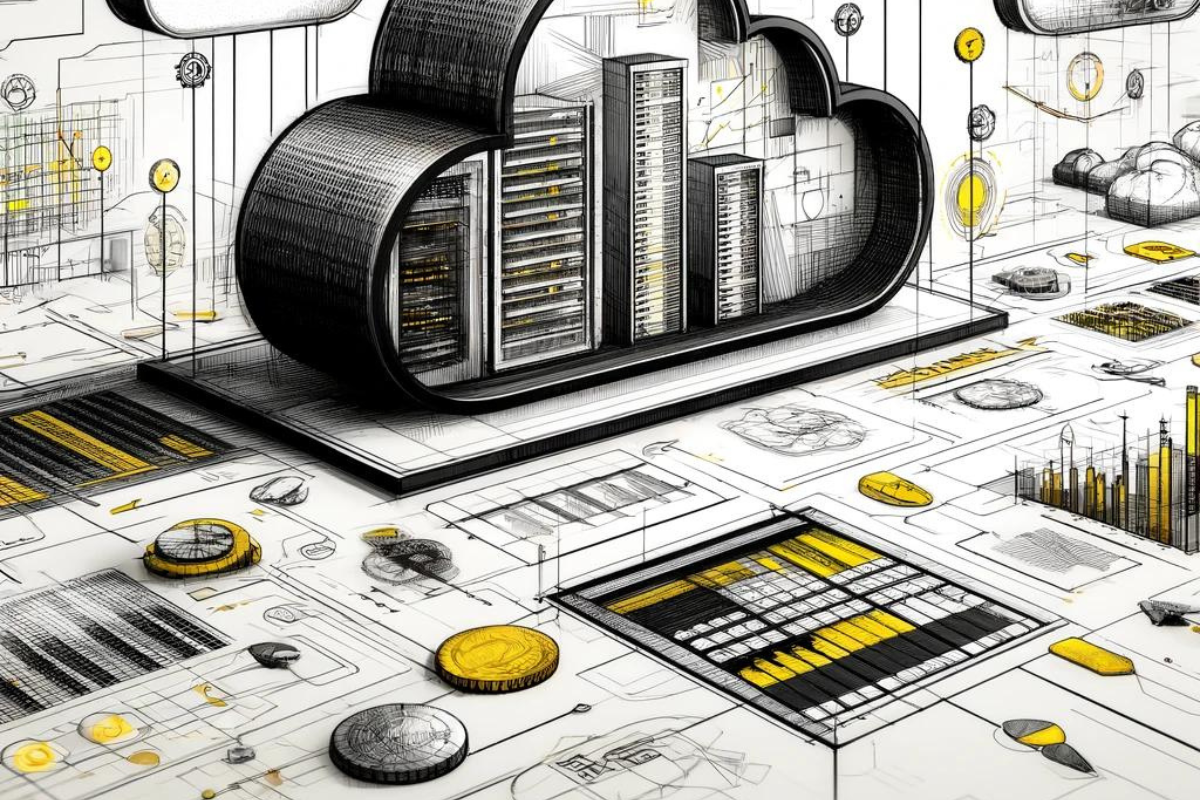GCP with AIML for Business Advancement
We see Artificial Intelligence (AI) and Machine Learning (ML) working hand in hand with Cloud Computing to make things easier for everyone. These powerful technologies are changing the game in industries like healthcare, finance, and beyond.
Think about it – AI and the cloud are like two peas in a pod. They’re a perfect match, each making the other even better. For example, imagine a bank using Google Cloud to catch fraud in real-time, keeping customers safe and happy.
Google Cloud Platform (GCP) isn’t just about storing data – it’s a tool that help businesses understand their data better. These tools are like friendly helpers that make sense of all the information, saving time and making things more personal for customers. GCP doesn’t just offer cloud services, it offers a variety of additional services like AI, machine learning, and data analytics through user-friendly tools. These tools help businesses unlock valuable insights from data, automate tasks, and create personalized experiences for customers.
Highlighting GCP Console Features:
- Cloud AutoML: Designed for developers who are new to machine learning, Cloud AutoML makes it easy to train, evaluate, improve, and deploy high-quality ML models. Its simple interface simplifies solving complex problems.
- Text-to-Speech-to-Text: Google’s APIs make converting text to speech and vice versa quick and easy. This is particularly useful for creating voice bots, text bots, and more.
- Dialogflow: A powerful tool for developers, Dialogflow enables the creation of chatbots and interactive voice response systems for both web and mobile applications.
- AI Platform: Covering everything from model development to deployment, AI Platform is the go-to solution for developers looking to enhance their machine learning projects.
- AI Hub: A cloud-hosted repository filled with pre-built AI applications, components, and machine learning algorithms. It’s a valuable resource for developers looking to customize their projects.
- Tensorflow Enterprise: Offering enterprise-grade support, performance, and managed services, Tensorflow Enterprise is ideal for ML and AI workflows in business settings.
Google Cloud Platform supports the entire lifecycle of machine learning, from data ingestion and preparation to model training, deployment, monitoring, and management. Whether dealing with structured or unstructured data, GCP’s AI Platform offers a unified workflow with options for engineers of all skill levels, both with and without coding experience. With GCP, users gain unparalleled access to dynamic AI functionality that can drive growth and innovation across their organizations.
Before, businesses used to rely on old-school methods to understand data. But now, with machine learning, they can predict trends and make smarter decisions based on real information. It’s like having a crystal ball that tells you what’s coming next.

how does GCP’s machine learning help businesses?
- Manufacturing: GCP-based machine learning in manufacturing helps factories by predicting when machines might need maintenance, preventing costly downtime. It also assists in optimizing production by forecasting demand, ensuring that factories produce the right amount of products without excess or shortage.
- Retail: In retail, GCP-based machine learning suggests products to customers based on their preferences and behaviors, leading to personalized shopping experiences. It also helps retailers manage inventory more efficiently by predicting demand and recommending when to restock shelves to avoid stockouts or overstocking.
- Healthcare: GCP-based machine learning plays a crucial role in healthcare by analyzing patient data to identify patterns and trends that can indicate potential health issues. It assists doctors in making more informed decisions about diagnosis and treatment options, ultimately leading to better patient outcomes and improved healthcare delivery.
- Finance: In the finance sector, GCP-based machine learning detects anomalies in financial transactions that may indicate fraudulent activities, helping banks and financial institutions protect themselves and their customers from fraud. It also assesses creditworthiness and predicts loan defaults, assisting banks in making lending decisions that balance risk and profitability.
- Travel and Hospitality: GCP-based machine learning simplifies the booking process for travelers by analyzing their preferences and past behavior to suggest personalized travel options. In the hospitality industry, it enhances guest experiences by providing personalized recommendations and services based on their preferences and previous interactions with the brand.
- Energy and Utilities: GCP-based machine learning optimizes energy usage and resource management in the energy and utilities sector. It analyzes data from sensors and devices to predict energy demand, optimize power generation and distribution, and identify potential issues before they cause disruptions. This ensures efficient operations and enhances reliability in delivering essential services to customers.
Conclusion:
The integration of cloud-based machine learning across various industries marks a significant leap forward in operational efficiency, customer satisfaction, and overall business performance. From manufacturing to healthcare, finance to travel, and energy to retail, the transformative impact of AI and ML on Google Cloud Platform is undeniable. By leveraging predictive analytics, personalized recommendations, and data-driven insights, businesses can not only streamline their processes but also stay ahead of the curve in an increasingly competitive landscape. As we continue to witness advancements in technology, it is clear that the synergy between machine learning and cloud computing will continue to drive innovation and shape the future of industries worldwide.
To learn more about Machine Learning, check out my previous blog, ‘Machine Learning 101: A Beginner’s Handbook‘.








